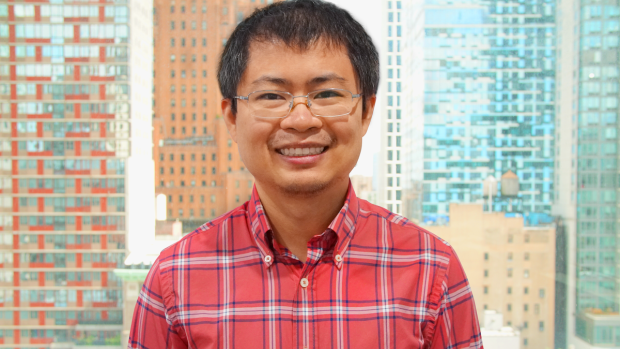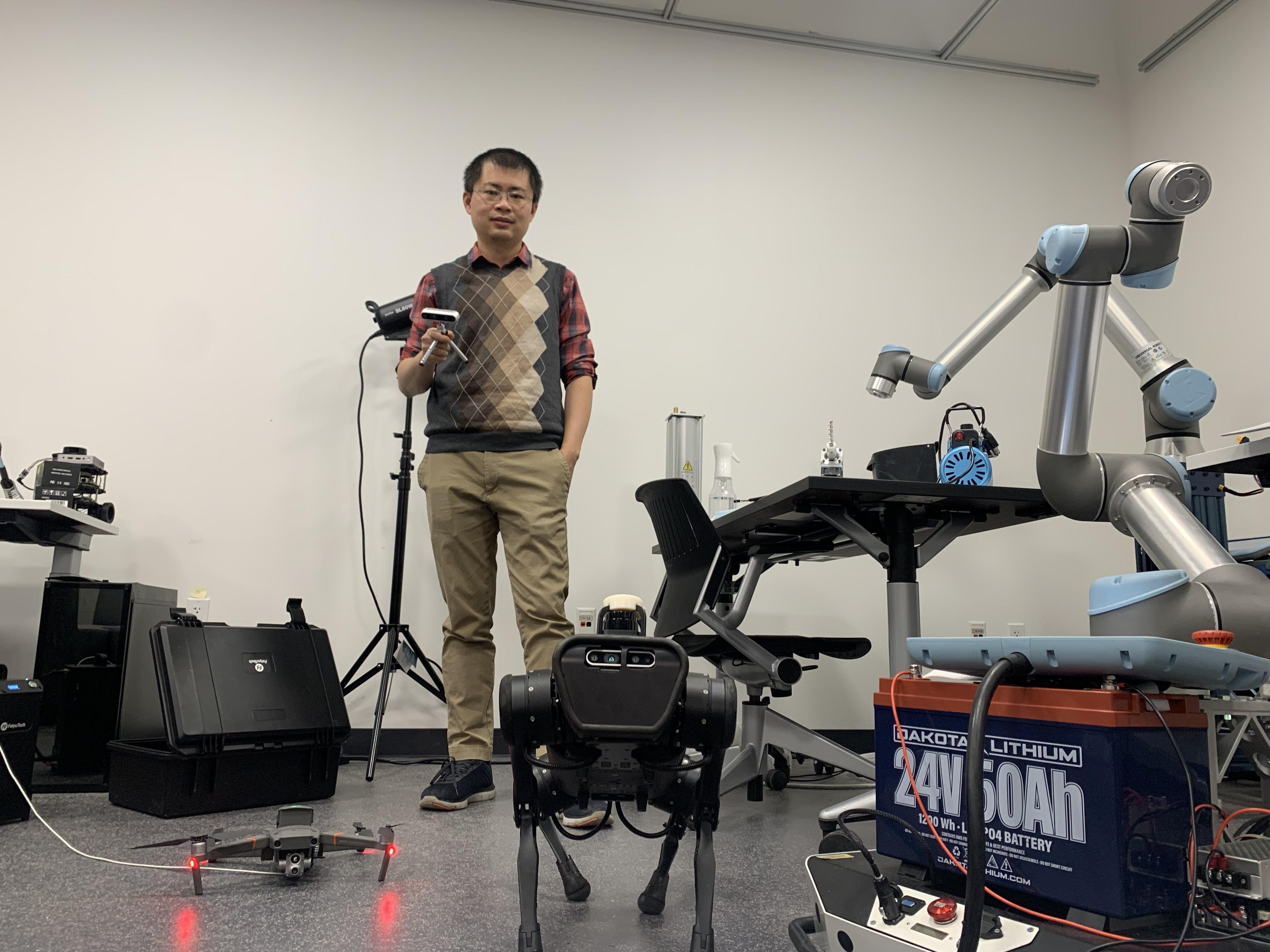NYU Tandon professor wins NSF CAREER Award for boosting the perception and navigation capabilities of construction-site robots
Robotics expert Chen Feng aims to alleviate long-standing problems in occupational safety, productivity, costs, and labor shortages in the construction industry.

The National Science Foundation (NSF) has selected an NYU Tandon School of Engineering researcher who is advancing robotics and artificial intelligence (AI) to address the most pressing problems facing the construction industry as the recipient of its most prestigious award for promising young academics.
Chen Feng — an assistant professor with appointments to Tandon’s Department of Civil and Urban Engineering, Department of Mechanical and Aerospace Engineering, Department of Computer Science and Engineering, and the Center for Urban Science and Progress (CUSP) — received a 2023 NSF Faculty Early Career Development Award, more widely known as a CAREER Award, which supports early-career faculty who have the potential to serve as academic role models in research and education.
He joins the over 50% of NYU Tandon’s engineering faculty members who hold CAREER Awards or similar young-investigator honors, including 11 just since 2019.
A five-year NSF grant of almost $600,000 will support his fundamental research aimed at enabling better perception and navigation for the robots used to monitor construction job sites. Moreover, the results will be widely applicable to scenarios beyond construction, ranging from connected and autonomous vehicles to service robotics in smart and accessible cities.
The construction industry — which is estimated to be worth $1.6 trillion in the U.S. alone according to trade groups — is responsible for maintaining aging civil infrastructure and building new facilities that can accommodate the needs of the 21st century. The sector faces several issues, including the need to improve workplace safety, boost productivity, control costs, and alleviate labor shortages. A promising technical solution is to introduce mobile robots on construction job sites. Unlike manufacturing automation or self-driving cars, however, construction robots face unique challenges due to the need to navigate dynamic environments, work closely with humans in a variety of tasks, and handle often-heavy payloads. They are frequently limited in their performance by perception challenges due to occlusion and limited field of view.
Chen intends to produce an intelligent mobile robot team equipped with cameras and 3D LiDARs to autonomously monitor construction progress and operations to boost job site efficiency and safety. To improve the robustness, reliability, and scalability of the vision system in mobile robots, novel self-supervised and graph-based representation learning will be used to extract, organize, and reason about places and objects from high-dimensional sensory inputs. This research will advance the state of the art in multiple ways, including:
- robust navigation from topological representations for monitoring in dynamic and ever-changing job sites
- collaborative perception for providing safer operation monitoring and collision warnings on busy sites
- integrated perception and navigation at the algorithm, system, and dataset levels
To do so, he is breaking down departmental siloes and melding robotics, artificial intelligence, and civil and mechanical engineering — an approach that allows him to contribute to advancements in not just robotics and AI, but multiple areas of great interest to urban planners and researchers, since construction is a major driver of growth in ever-evolving cities like New York. Cross-department projects like his are foundational to Tandon, which has always encouraged its faculty members to connect the dots between various skill sets and knowledge bases to devise solutions to previously intractable problems.
Chen and his team will validate their results at actual construction job sites through his large network of industry partners, and the resulting software, hardware design, and dataset will be made available on an open-source basis to stimulate future research. Moreover, in order to broaden the participation in STEM education and engineering workforce training, his team will convert their research results into novel educational games to teach undergraduate and K-12 students robotics and AI and will host workshops to train future engineers to leverage modern robotics and AI technologies.
In recent years, Chen — who sits on the board of the International Association of Automation and Robotics for Construction — has also designed autonomous systems for teams of 3D printers on robotic arms attached to mobile, roving platforms (advancing a concept called collective additive manufacturing), improved the efficiency and scalability of large-scale modular construction, and explored the possibilities presented by particle robots (small, simplistic drones that can act together as a “swarm”), among other such projects.

“Chen Feng joins a growing contingent of young faculty members expanding the potential of robotics and AI,” said NYU Tandon Dean Jelena Kovačević. “The cross-disciplinary approach he is taking at his Automation and Intelligence for Civil Engineering lab (or AI4CE, as it is known) is a great example of Tandon’s commitment to vital areas of research and the innovative work that takes place at the intersections between them.”
Chen’s award reflects the NSF's statutory mission and has been deemed worthy of support through evaluation using the Foundation's intellectual merit and broader impacts review criteria.

